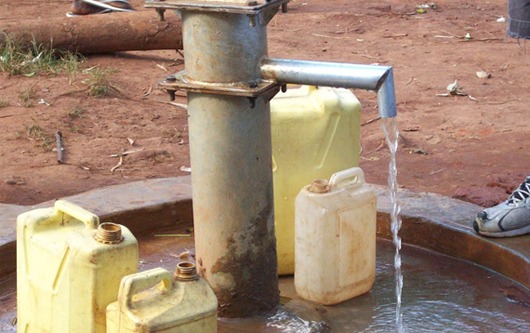Nairobi, Kenya — In many Kenyan households, borehole water is trusted as a steady alternative to unreliable piped supply. It looks clear, tastes fresh and seems safer than water drawn from rivers or dams. But experts caution that what appears pure may conceal a silent danger.
Health professionals warn that untreated borehole water can carry contaminants ranging from excess minerals to harmful bacteria. The risks, they say, often emerge slowly, only becoming visible years later.
Fluoride contamination is one of the biggest concerns in volcanic regions such as Nairobi and the Rift Valley. “While small amounts of fluoride protect teeth, high levels damage them,” explained Dr Peter Wanjohi, a dental specialist in Nakuru. “We are seeing children with brown-stained teeth and adults with stiff joints due to skeletal fluorosis.”
The threat is not limited to minerals. Microbial contamination can occur when boreholes are drilled too close to pit latrines or leaking sewer lines. According to environmental consultant Innercore Geoconsultants, bacteria such as E. coli can seep into poorly sealed boreholes, sparking outbreaks of diarrhoea, cholera or typhoid.
Agricultural regions face another hidden risk: nitrate pollution. Fertilisers and animal waste can seep into groundwater, raising nitrate levels. Health experts link this to “blue baby syndrome,” a potentially fatal condition in infants caused by low oxygen in the blood.
Beyond these dangers, borehole water often contains iron, manganese, salts and even trace metals like lead or arsenic. Research published by the Texas A&M University System shows that while some of these minerals are harmless in small amounts, excessive levels can contribute to high blood pressure, kidney strain or even cancer. Unlike bacteria, metals cannot be removed by boiling.
Yet testing remains rare. Many Kenyans assume that water that looks clean is safe. “The first step is always a water quality test. Without it, you are drinking blind,” Innercore Geoconsultants noted in a recent advisory. Experts recommend testing once a year, though few households follow this guidance.
Treatment options exist — from chlorine tablets and UV systems to reverse osmosis — but cost and awareness remain barriers. In Nairobi, where thousands of private boreholes are now pumping groundwater, regulators also warn of environmental risks. Over-extraction has already lowered water tables in parts of the city, raising fears of sinkholes and dry wells.
Despite the risks, boreholes remain a lifeline for millions. For many families, they are the only reliable source of water. But without regular testing and proper treatment, the solution could slowly turn into a public health crisis.

